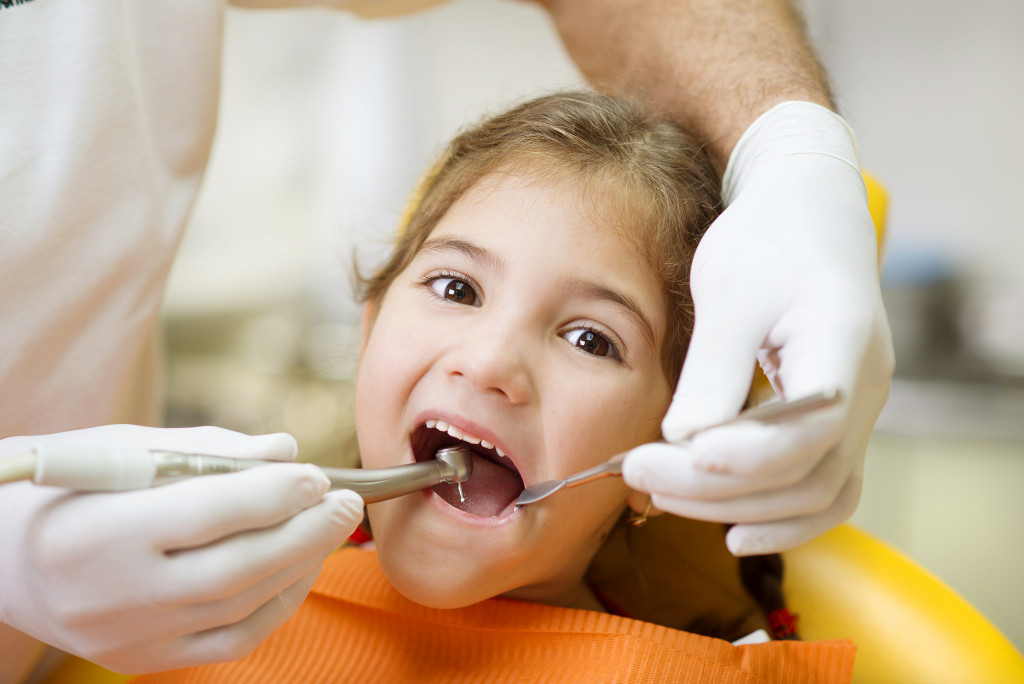Poor oral health has detrimental effects not only for adults but for children as well. The persistent dental pain, inability to chew food properly, and the embarrassment of having damaged or discolored teeth can take a toll on a child’s concentration and confidence.
Studies show that children with oral health issues are more likely to feel inferior, shy, sad, or depressed compared to those without oral health problems.
The Impact of Oral Health Issues on Learning
A child who is suffering from dental pain may exhibit irritability, fatigue, depression, anxiety, difficulty in attending tasks, and withdrawal from school activities. It can also cause increased distraction and inattention that may lead to failure in school. As children may not always be open to verbalize their pain to adults, teachers may not understand the cause of their poor performance in class. If your child is showing any of these behaviors, it might be helpful to check in with your trusted dentist.
Oral health issues can also decrease a child’s appetite that may lead to inadequate nutrition during childhood. This can negatively affect a child’s cognitive development that can also cause difficulty in concentration and performing assigned tasks that can carry on through adulthood. Research shows that elementary and high school students from families with low incomes are four times more likely to get a GPA below 2.8.
The Effects of Poor Oral Hygiene on Interaction and Performance
Early tooth loss due to poor oral hygiene can also impair speech development and affect a child’s self-esteem. Younger children tend to become shy and distracted from play and learning. While adolescents in high school often become more self-conscious and insecure.
Missing school due to oral pain or infection can also lead to poor academic performance. Research shows that children and adolescents with oral health issues miss 1 day of school per year more than their peers. Elementary and high school students from low-income families who do not have access to dental care in the last 12 months are three times more likely to miss school due to oral health issues than those who could access immediate dental care.

Developing and Improving Your Child’s Oral Health Early On
Instilling the importance of oral health early on can be considered a good investment for your child’s future success. Oral health is a continuous effort from child- to adulthood and here are some good tips worth mentioning from a dentist in Ontario, California.
Make the Habit of Brushing Fun
Investing in a good-quality toothbrush is a good first step. But make it more fun for children by choosing a design based on their favorite cartoon or game. There are also colorful rinsing cups and an assortment of cool flavored floss for them to choose from.
Encourage Children to Drink More Water
Water is still the best beverage for overall health. Teaching children to drink water after every meal will not only work wonders for their oral health but for the rest of their bodies as well.
Limit Sugar and Acid Intake
Train kids to opt for healthier snack options like fruit salad or slices. Though fruits still contain sugar and acid, it helps with removing food debris after a meal and contains vitamins essential to your children’s health. Just make sure to make them drink lots of water afterward.
Get Those Jaws Working
While cut-up and ready-to-eat food are easier for kids to manage, try to give them some crunchy fruit or vegetable to chew on from time to time. Eating this type of food stimulates the gums to make them healthier and serves as a good exercise for the jaws.
Get Help from Your Local Dentist
Even the most dutiful flossers and brushers still need a visit to a dentist at least twice a year for checkups and cleanings. Aside from keeping your teeth clean and healthy, dentists can also spot any potential oral health issues and provide you with the recommended treatment. If your insurance can cover a more frequent visit to a dentist, take advantage of it.
Preventing and addressing oral health issues may benefit a child’s academic achievement, cognitive development as well as psycho-social well-being.
